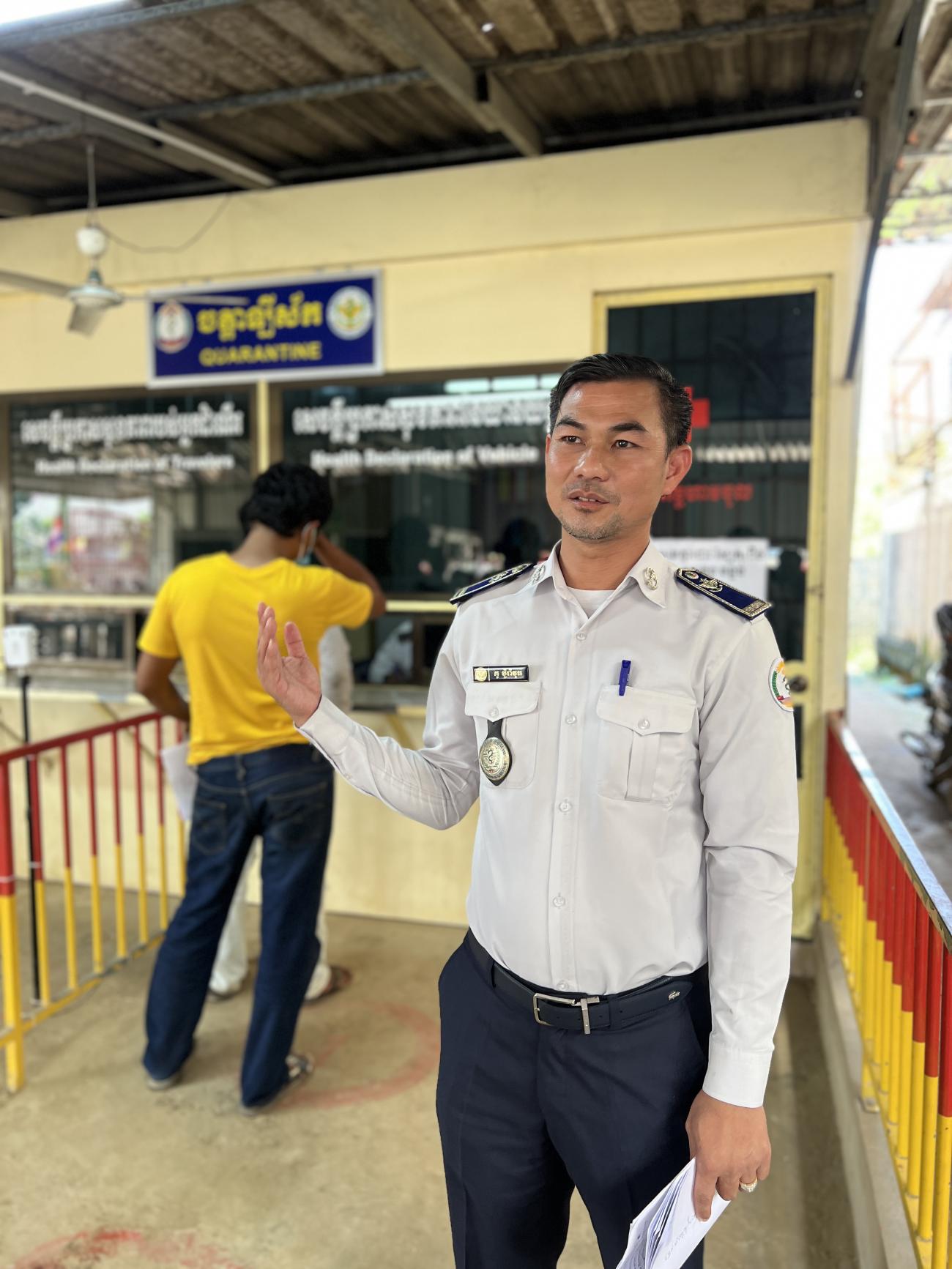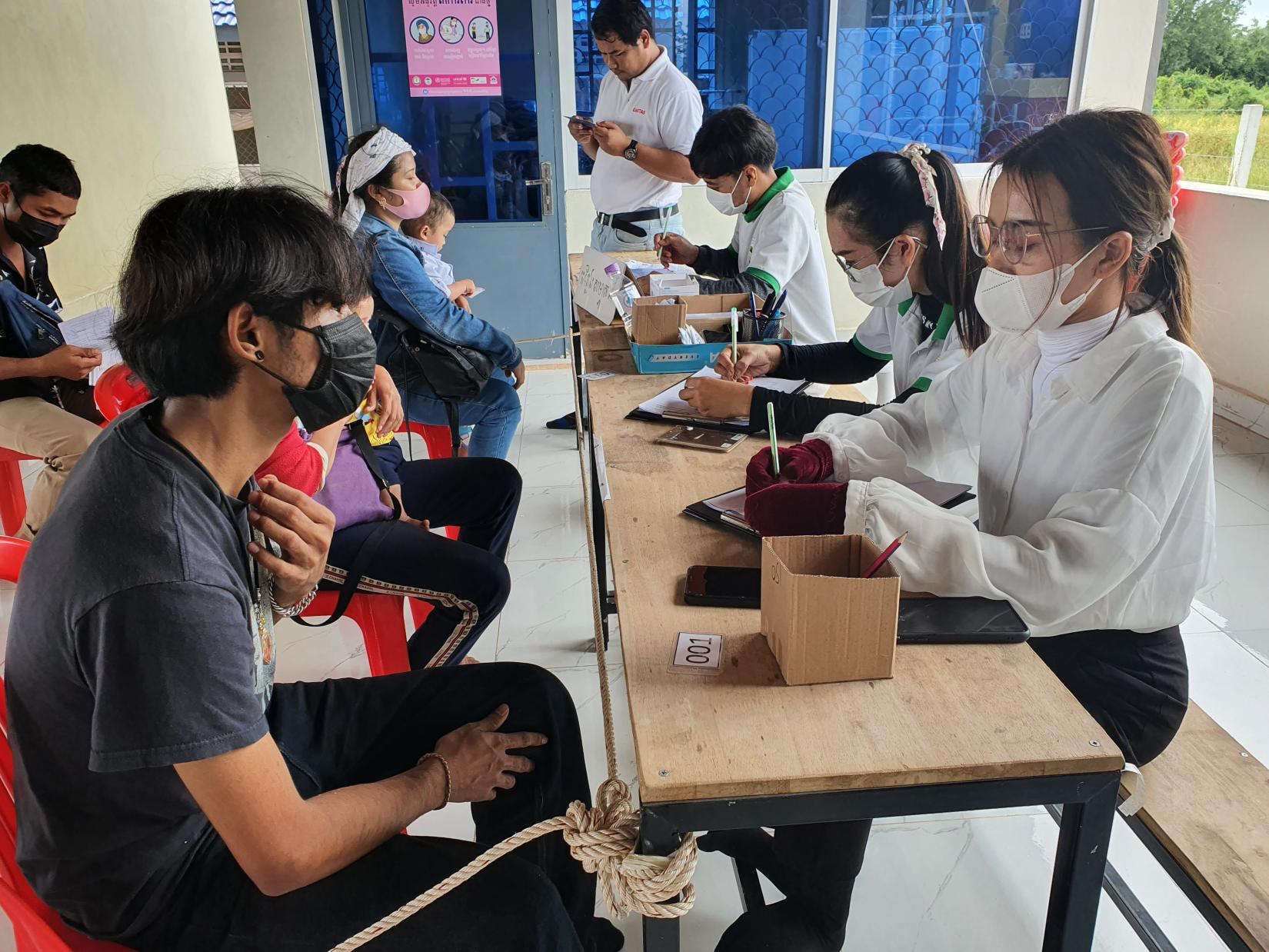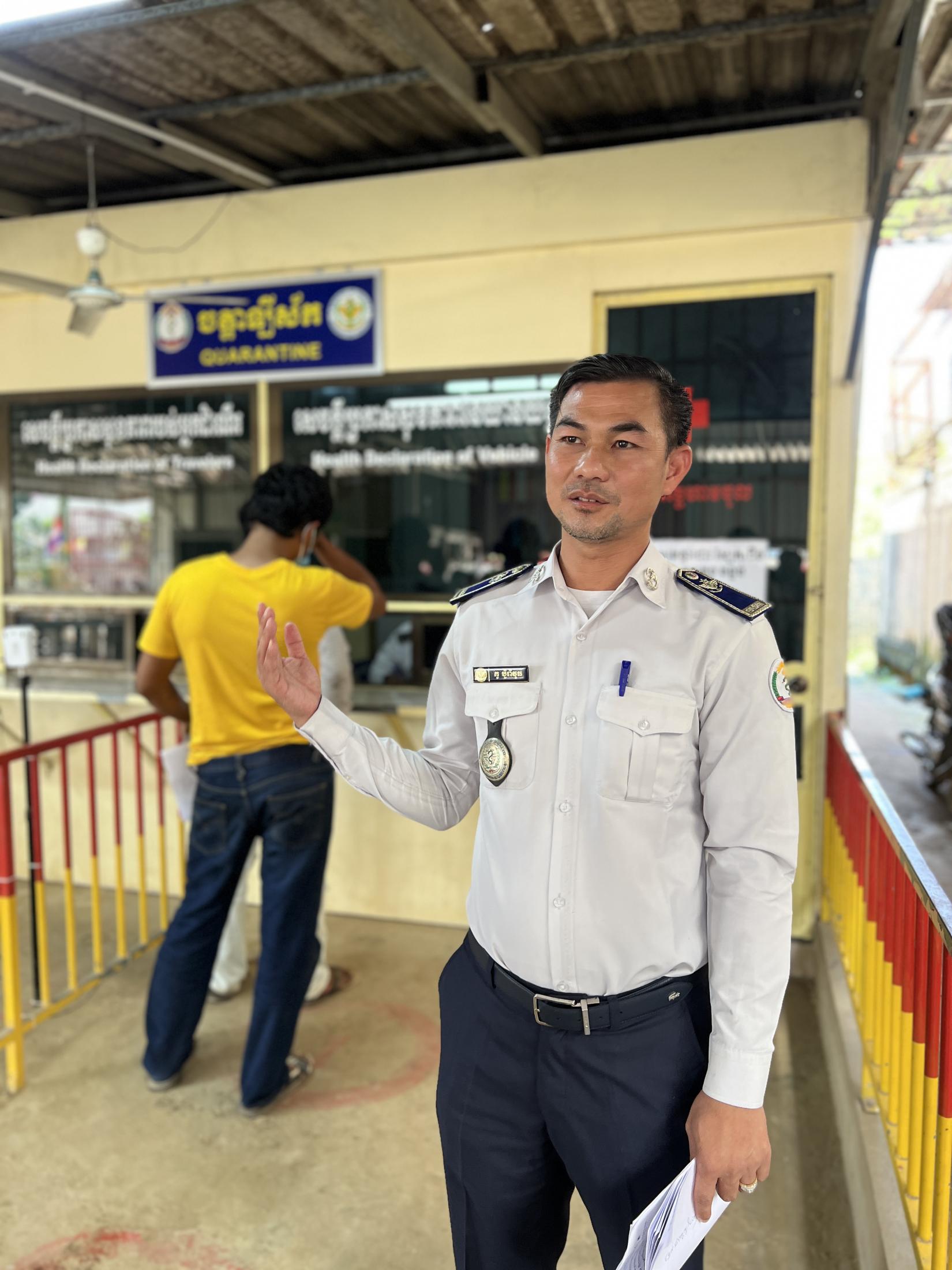WHO strengthens health security at Cambodia’s borders during COVID-19 and beyond

Story by WHO Cambodia
In early 2023, up to 200 people might cross the Thai-Cambodian border every day at Daung checkpoint, in Battambang Province in Cambodia.
But two years earlier, thousands of people could be found passing through Daung checkpoint into Cambodia on a single day. Many were migrant workers who had lost their jobs in Thailand and were seeking medical care back home or wanted to be with their families during the COVID-19 pandemic.
Back then, the flow of returning migrants would intensify after border closures were put in place to control transmission of the coronavirus, which had evolved into the more transmissible Delta variant.
Daung border official Kou Poravuth, 43, clearly remembers one such busy day.

“About 600 migrants arrived at the border a day earlier, but the border was closed. They slept overnight in tents and in the open air.
“It was the most memorable event. I felt most empathetic about Cambodian migrants being allowed to enter Cambodia,” he said.
Because of the heightened risk of the Delta variant, border crossings along the 800km-long frontier with Thailand needed to scale up operations quickly to protect returnees’ health and prevent large-scale community transmission in rural communities that could overwhelm health systems.
Under a United Nations (UN) Joint Programme, supported by the Government of Japan, the World Health Organization (WHO), in partnership with the International Organization for Migration (IOM), the United Nations Population Fund (UNFPA) and the United Nations Children’s Fund (UNICEF) supported the Royal Government of Cambodia to strengthen health security during the pandemic in the border provinces of Banteay Meanchey, Battambang and Oddar Meanchey.
Chhoeub Yeurt, 29, worked as a midwife before the pandemic but became a border official at Boeung Trakuon in Banteay Meanchey Province in 2022 to help with the extra COVID-19 measures required to process seasonal workers and local people crossing the border to run daily errands.
Ms Yeurt found it a challenging opportunity that left her more confident and ready for future emergency responses.
“I like this job because it has allowed me to learn and grow. I feel more confident now than when I first started. At that time, I was very nervous,” she said.
WHO worked with the Ministry of Health and provincial health departments to train health, border and quarantine centre staff in infection prevention and control, how to care for people with COVID-19 and how to support returning migrants so that they received a humane and dignified welcome that ensured their basic rights. WHO conducted site visits and on-site coaching, training of trainers (ToT), webinars and strengthened cooperation with other sectors.
Her Excellency Chou Bun Eng, Secretary of State, Ministry of Interior, said the joint programme was an important part of Cambodia’s pandemic response.
“In the past, we were not prepared for such a fast-spreading COVID-19 pandemic. But the UN Joint Programme responded to our issues and needs, especially for preventing the spread of infectious diseases associated with human mobility, for example, by paying increased attention to health management at border crossings with migrant communities.
“The food, sanitation, clean water, and hygiene measures; thermal scans; ethics training; standardized quarantine and health services and health education support for both quarantine and health centres; and promotion of community livelihoods contributed to minimizing the spread quickly,” she added.
The UN Joint Programme not only supported health, border and quarantine staff in the three provinces to respond to the complexities of the COVID-19 pandemic but strengthened the health-care and border management systems to prevent, prepare for, and respond to, future emergencies. Staff have improved their knowledge and skills on infection, prevention and control and now have standard procedures in place to respond to future outbreaks and other emergencies.
Mr Poravuth said the support had left his team better prepared for future crises.
“We will be able to manage a health situation better than we could two years ago. At that time, it was completely new for us. We have learnt from the past experiences and received continued support from the Ministry of Health and WHO,” he said.



